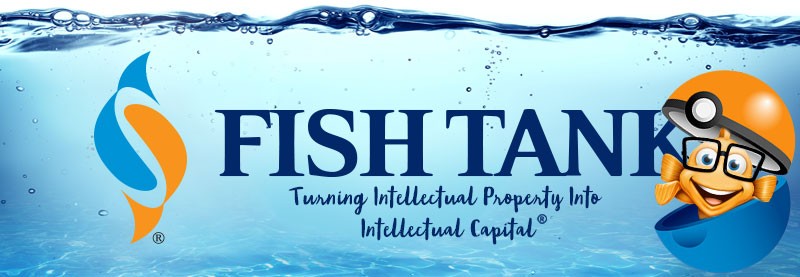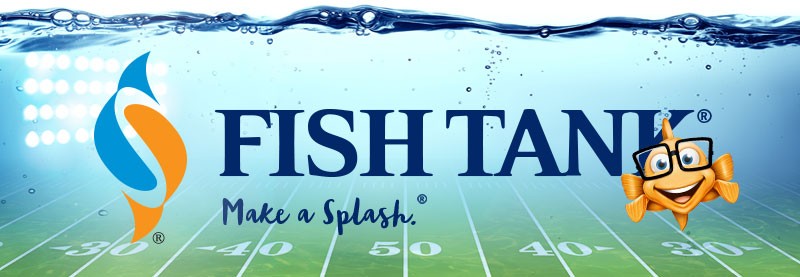Intellectual Property Insights from Fishman Stewart
Mini Article – Volume 23, Issue 13
Share on Social

A Banana Taped to a Wall – Copyright but no Infringement
How many ways are there to tape a banana to a wall? Yes, this is a serious legal question. In fact, this was the question presented in a recent copyright infringement lawsuit in Florida.
Italian artist Mauizio Cattelan is known for his controversial artistic creations, including a piece called Comedian which is a banana duct-taped to a wall. Since its gallery debut in 2019, Comedian has made headlines a couple of times, first when it was sold for $120,000, and then when the banana was eaten by another artist in 2019 and then again when the banana was eaten by a student in 2023. Apparently, art appreciation is hungry work.
Recently, Comedian made headlines as the basis for a copyright infringement lawsuit. Conceptual artist Joe Morford filed a lawsuit against Cattelan claiming that Comedian was a copy of Morford’s earlier made work called Banana and Orange, which featured (as one could guess) a banana and an orange duct-taped to a wall. The judge concluded that no copyright infringement occurred, because despite the similarities between the works—mainly that both works involved bananas taped to walls—there were enough differences between the two pieces of art to find that Cattelan’s Comedian was not a copy of Morford’s Banana and Orange.
According to the judge, the only shared feature between the two pieces was the concept of a banana taped to a wall with the stalk on the left-hand side. Copyright protection applies to expressions of an idea or concept, but not to the concept or idea itself. This limitation also applies where there are only a handful of ways to express an idea. In this case, the judge concluded, there were only two ways to tape a banana to a wall—stalk-left and stalk-right—and thus the concept of taping a banana to a wall stalk-left was not protected under copyright law. So, the judge dismissed the case. We will have to wait and see if there will be an a-peel!
Kristyn Webb is the Group Leader of Fishman Stewart’s Copyright Practice Group, and is currently earning a Master’s Degree in Copyright Law at King’s College London.

Published July 14, 2023


Related Content from Fishman Stewart
In a recent decision, the U.S. Court of Appeal for the Eighth Circuit affirmed a jury verdict holding that the use of the "Success Kid" meme by a congressman's reelection campaign for fundraising purposes did not qualify as fair use.
In February 2024, proposed legislation was introduced in US House of Representatives which would extend copyright protection to golf courses. The bill is titled “Bolstering Intellectual Rights against Digital Infringement Enhancement Act” or the “BIRDIE Act”.
June is Pride Month, which honors the 1969 Stonewall Uprising in Manhattan and recognizes the impact that lesbian, gay, bisexual, and transgender (LGBTQ+) individuals have had on history locally, nationally, and internationally. The United States Patent and Trademark Office flies the Pride Flag and promotes the Pride community’s contributions with programming offered annually.
June is Pride Month. This year we are celebrating with some IP tips for drag performers! Drag performers can protect their intellectual property by registering the copyrights in their original works of music, choreography, and comedy sketches.
You’re rarely more than a few yards from Finny’s favorite chips, semiconductor chips to be precise. But what exactly is a semiconductor chip?
"May the 4th Be With You," also known as Star Wars Day, takes place annually on May 4th. The phrase is a pun on the iconic Star Wars catchphrase "May the Force be with you."
First, a big “thank you” to all our readers who have given feedback on our newsletter. We appreciate your interest and insights. It is always a treat to hear from you! Second, we wanted to provide you with updates on some of our most popular articles
“Palworld”— a computer game created and published by Japanese developer Pocket Pair. Released as an early access game in January 2024, it sold over seven million copies on the computer platform Steam in the first five days and had nearly 20 million players in the first two weeks.
This year’s Super Bowl featured a thrilling overtime victory for the Kansas City Chiefs over the San Francisco 49ers. With estimates as high as 123 million viewers, America's premier sporting event also serves as a grand stage for creativity and intellectual property protections that enhance the game’s success.
Valentine’s Day is just around the corner and jewelry sales are usually around $6 billion USD in the United States alone. In 2021, the US Customs and Border Protection agency seized over $1 billion USD worth of counterfeit pieces of jewelry.
IDENTIFYING, SECURING AND ADVANCING CREATIVITY®











